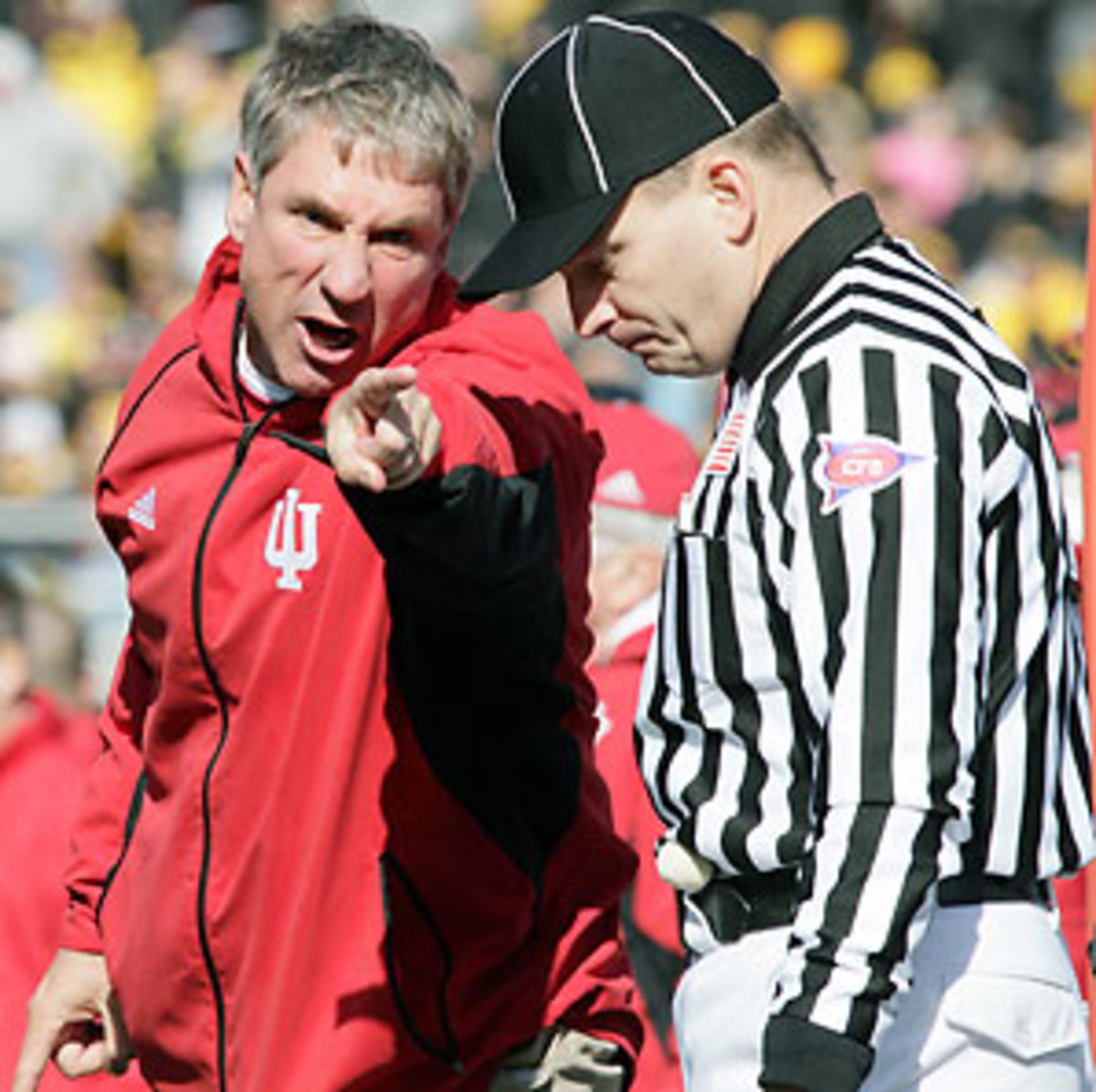Nationalizing officiating would lessen errors, conspiracy theories
This has been a tough season for the men in striped shirts.
Games featuring SEC, Pac-10 and Big Ten contenders have produced highly publicized blown calls, and in turn ample fodder for every conspiracy theorist with a blog, press pass, Twitter account or access to a message board.
David Parry has seen the other side of those calls. Now the national coordinator for College Football Officiating (CFO), Parry spent 19 years as a ref in the Big Ten. He recalls sitting in the locker room with his crew after games, fellow refs close to tears over a blown call. He remembers phone calls days later, colleagues unable to sleep knowing their misjudgment had altered the course of a game, and maybe a season.
"That's what they remember and that's what haunts them," Parry said. "That's kind of the irony of football officiating, or all officiating: you're remembered pretty much by your mistakes, not the ones that you get right. Unfortunately, that's kind of the world we live in."
This season, several bad calls in close, high-profile games have put the spotlight squarely on officials. But as Parry knows, the bad calls are only part of the problem, and the punishments for those calls -- be it the SEC suspending the Arkansas-Florida crew, or announcing it would fine or suspend coaches who criticized officials -- are only bandages.
The real answer may lie in nationalizing and standardizing college football officiating.
Human error will always be a part of the game, but Parry and CFO are attempting to introduce a national governing body that would level the field.
"It would take the label off the back of the officials," Parry said. "So therefore [no one] would say 'This is an SEC crew and we'd bombard the SEC with our complaints.' It would give more neutrality instead of saying they belong to a particular conference and officiate a certain way or have a certain agenda."
Parry is working with the commissioners from each of the FBS conferences, two FCS conferences and NCAA executives to develop national standards for interpretation and officiating mechanics and to change how officials are matched, assigned to games and evaluated.
Currently, individual conferences govern and assign officials to games; that's why, two weeks after the LSU-Georgia controversy, the same crew created further headaches in the Arkansas-Florida game. Eventually, the crew's work came back to haunt it, and it was suspended. Under the current system, each crew member receives a grade for accuracy, and those who score too low don't earn bowl assignments. But when the same crew makes headlines two out of three weeks, it's bad for the officials involved, the conference for college football.
Ultimately, Parry hopes to eliminate conference-specific crews, instead splitting the country into regional crews reporting to a regional supervisor. If such a system followed the current bowl assignment standards, it would reduce instances of the same officials working together on a crew, and the same crew working more than one game for a given team.
Some conferences have already begun pooling resources to facilitate this blended crew concept. (Last season the Big 12, Mountain West and Conference USA experimented by sharing officials; this season the MWC, C-USA and WAC have formed an alliance, as have the Big Ten, MAC and Missouri Valley.) Still, Parry worries long-standing roadblocks will inhibit widespread adaptation -- some officials would rather maintain "territorial pride" instead of officiating games nationwide, and some coaches who have grown familiar with conference officials may not warm to refs they don't know.
"No coach wants to hear an official say to him, 'Well, we don't call it that way in our league,'" Parry said.
In an effort to assuage the skeptics and in the hopes of standardizing calls, the CFO held preseason clinics across the country. In the past, a conference's coordinator may have put an emphasis on a particular call. That means, for example, holding in the Big 12 might not have been interpreted the same way as holding in the Pac-10. But Parry said the clinics have already made an impact.
"Every week we check out six, seven, eight games and [it's very consistent]," he said. "It's amazing how many times you'll watch a game and ask yourself 'Which crew is working this game? It looks just like the one I had yesterday or the day before.' I think the consistency factor has made some strides."
Of course, second-guessing will persist even if Parry's changes take hold; it's part of the unwritten contract between fans and officials. But while nationalizing officiating wouldn't silence the masses, it would leave even the most ardent conspiracy theorists searching for a new grassy knoll.






